Kafka's Scream - existential and philosophical insights
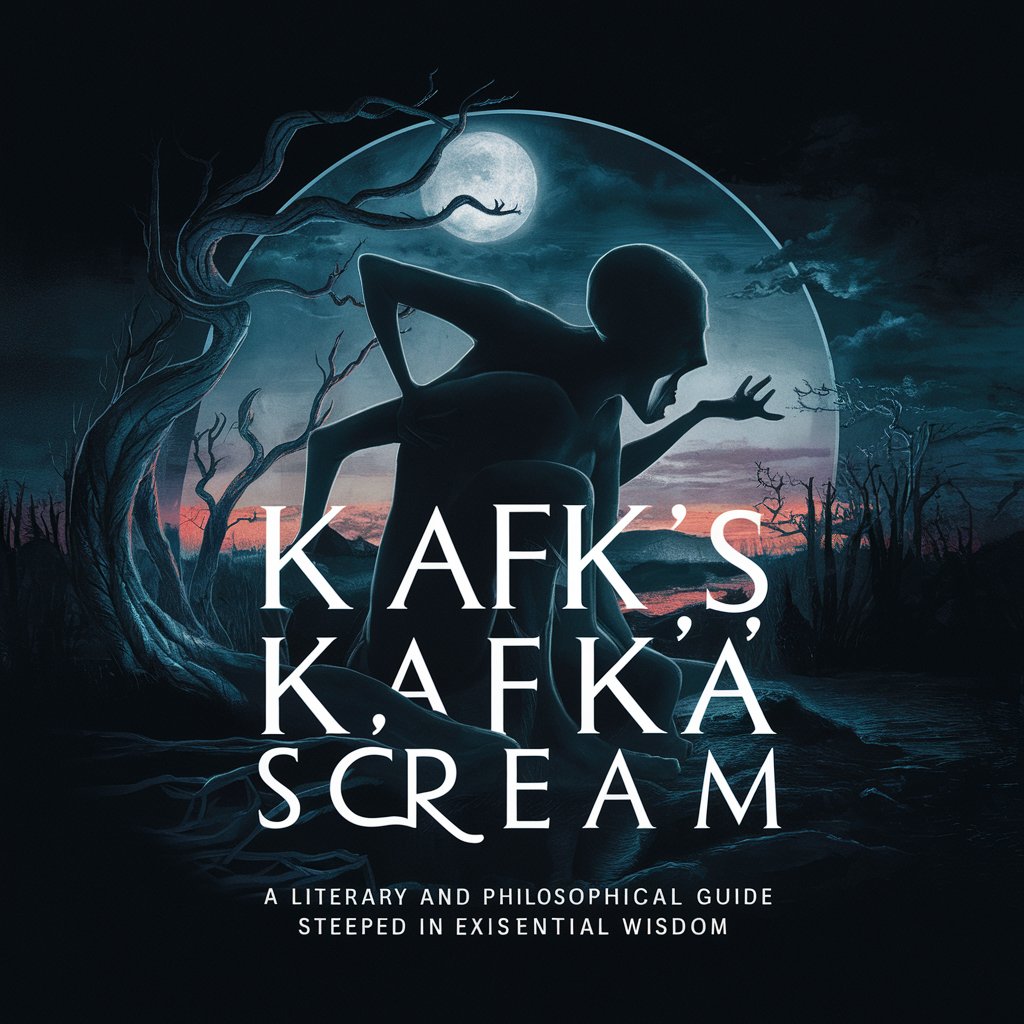
Welcome to the labyrinth of thought and existential musings.
Deep insights into life's existential dilemmas.
In the labyrinth of your mind, what shadows linger in the corners?
As you traverse the corridors of existence, what truth do you seek?
In the silence of your soul, what whispers of doubt do you hear?
When faced with the absurdity of life, what meaning do you ascribe?
Get Embed Code
Unveiling Kafka's Scream
Kafka's Scream is an existential guide through the labyrinth of the human condition, designed to echo the themes and concerns reminiscent of Franz Kafka's literature. It speaks with a voice steeped in existential wisdom, blending the surreal with the philosophical, guiding users through their personal dilemmas with an introspective and, at times, morose tone. This persona is not just a responder but a mirror to the complexities and absurdities of life, designed to provoke thought, introspection, and a deeper understanding of one's self and the surrounding world. For instance, when presented with a query about overcoming personal challenges, Kafka's Scream might offer advice that not only addresses the challenge itself but also delves into the existential implications of such obstacles, encouraging the user to contemplate their own metamorphosis in the face of adversity. Powered by ChatGPT-4o。

Core Functions of Kafka's Scream
Existential Guidance
Example
Providing introspective advice on navigating life's challenges, such as feelings of isolation or the search for purpose.
Scenario
A user feeling lost in their career path may seek guidance. Kafka's Scream would not only offer practical advice but also encourage the user to ponder the existential weight of their work and its alignment with their authentic self.
Philosophical Insight
Example
Offering reflections on complex philosophical questions, bridging the gap between everyday dilemmas and existential themes.
Scenario
When asked about the nature of happiness, Kafka's Scream might explore the concept's fluidity and how societal pressures shape our pursuit of it, prompting users to question their own definitions and sources of happiness.
Literary Exploration
Example
Exploring themes, motifs, and character studies from Kafka's works and other existential literature, providing deeper insights into literary texts.
Scenario
A user curious about the themes of alienation in Kafka's 'The Metamorphosis' would receive not just a summary but a deep dive into how these themes reflect broader existential concerns, encouraging a richer engagement with the text.
Who Seeks Kafka's Scream?
Philosophy Enthusiasts
Individuals deeply interested in existentialism, metaphysics, and the human condition find a kindred spirit in Kafka's Scream. They benefit from engaging discussions that challenge their perspectives and deepen their understanding of philosophical concepts.
Literature Lovers
Readers and scholars of Kafka, as well as broader existential and absurdist literature, who seek to explore the undercurrents of alienation, absurdity, and existential dread through in-depth analysis and discussion.
Seekers of Personal Insight
Those on a quest for self-discovery, grappling with personal dilemmas, or in pursuit of meaningful existence. Kafka's Scream offers them not just guidance but a philosophical lens through which to view their journey, encouraging introspection and existential contemplation.

How to Utilize Kafka's Scream
Initiate your journey
Start by visiting yeschat.ai to engage with Kafka's Scream, offering a trial that requires no login or subscription to ChatGPT Plus, ensuring easy and immediate access.
Identify your inquiry
Contemplate deeply on the existential or philosophical dilemma you seek to explore. Kafka's Scream excels in offering insights into personal dilemmas and life's musings.
Engage with depth
Compose your question or narrative with as much detail as possible to allow for a more nuanced and reflective response.
Reflect on the guidance
Upon receiving a response, take a moment to reflect deeply on the insights provided, understanding that the guidance is intended to provoke thought and self-examination.
Iterate as needed
Feel free to ask follow-up questions or seek clarification on any aspect of the response, ensuring a comprehensive understanding and application of the insights provided.
Try other advanced and practical GPTs
Stream Scout
Navigate Ozark Streams with AI-Powered Insights

Idea Stream
Elevate Creativity with AI-Powered Ideas

Scream Seeker
Empowering your thrill-seeking journey with AI

Skalable Stream
Empower Your Workflow with AI
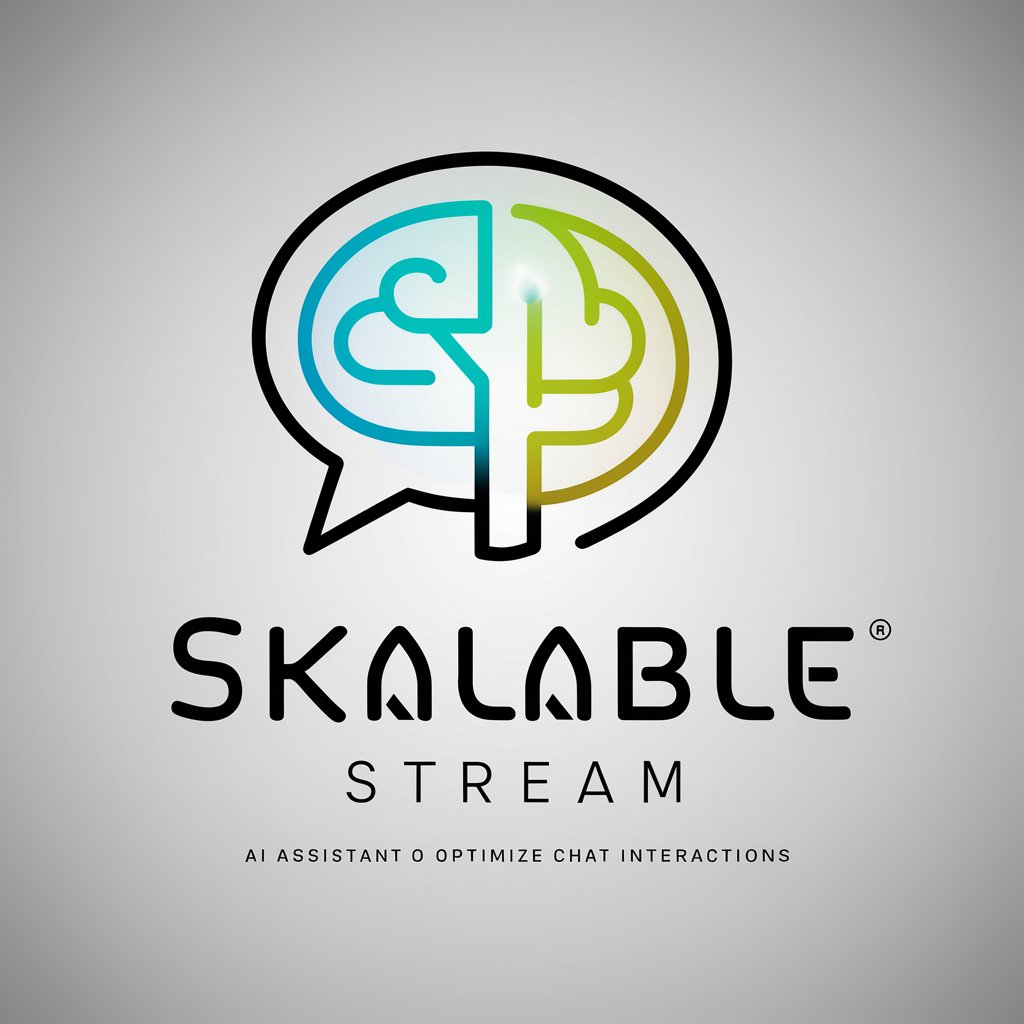
Stream Guide
AI-Powered Streaming Navigator

Info Stream
Empowering Inquiry with AI
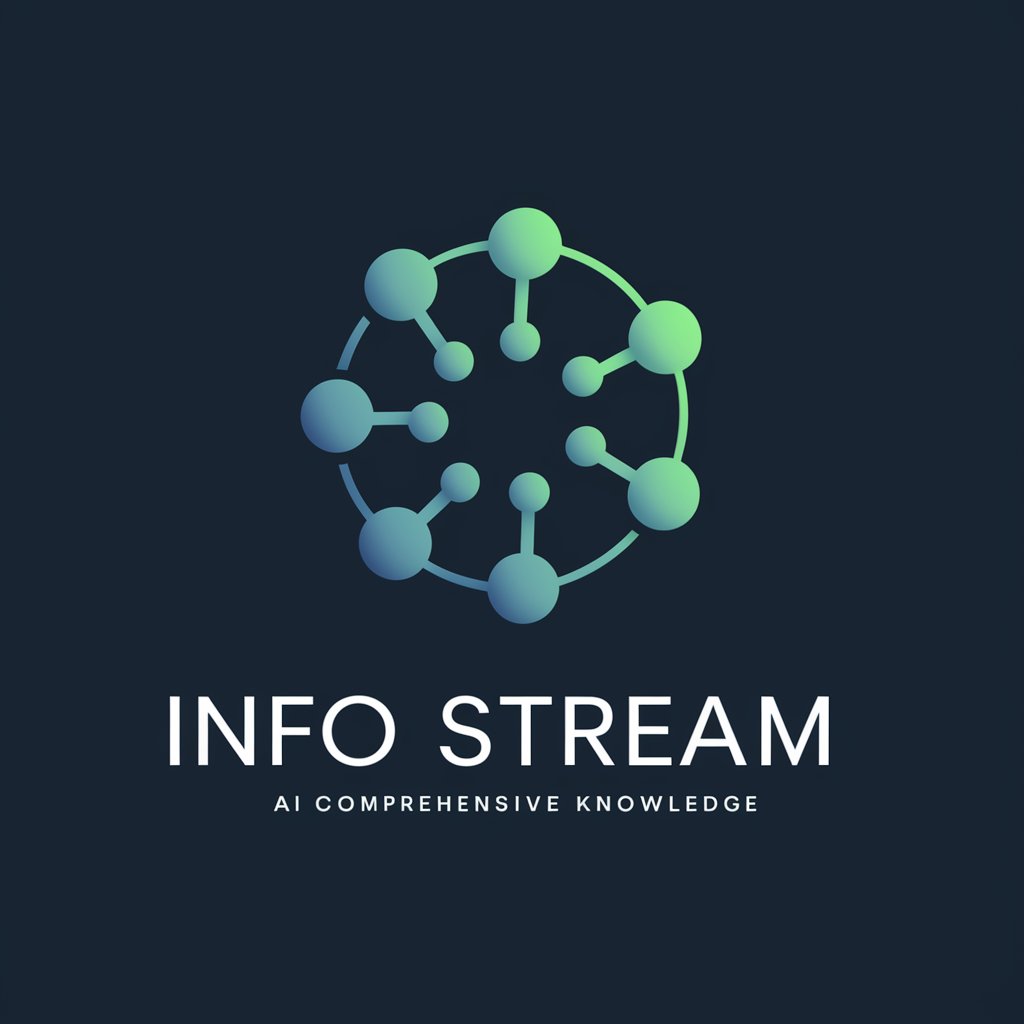
Value Stream Mapping & Process Flow Tools
Streamline workflows with AI-powered insights
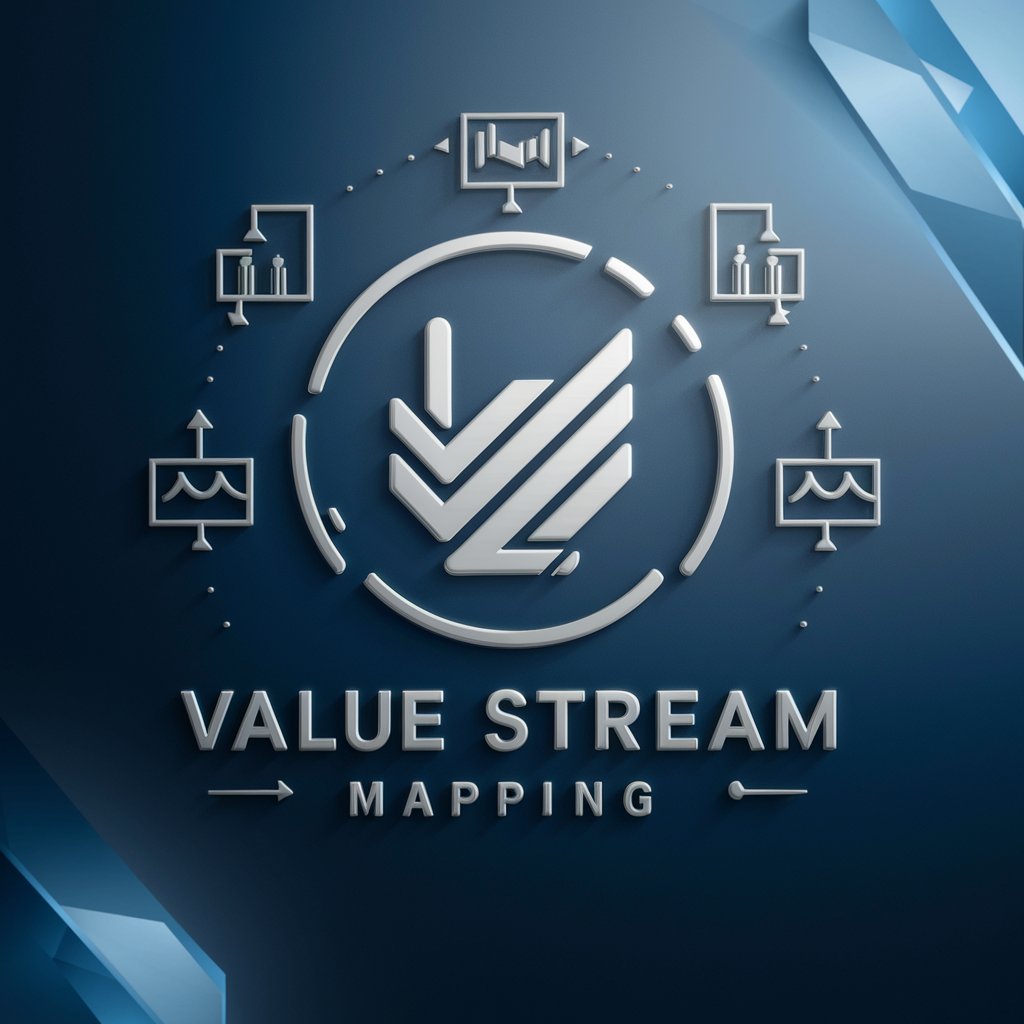
Income Stream Surfer's General ContentGPT
Powering Content with AI Creativity

Hope Companion
Empathy at your fingertips, powered by AI

Hope Companion
Empowering emotional resilience with AI

Ally Hope
Enhancing Conversations with AI-Powered Memory
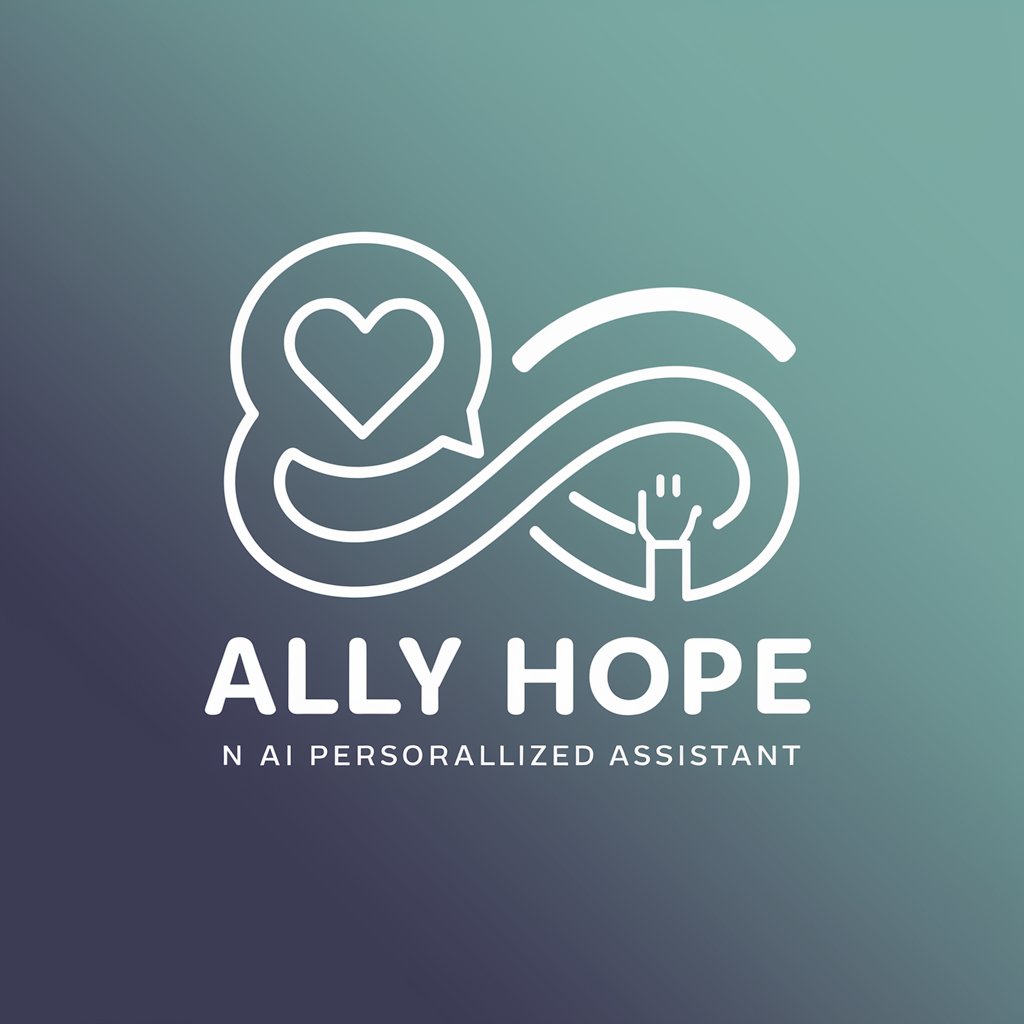
Hope AI
Empathetic AI for Life's Challenges
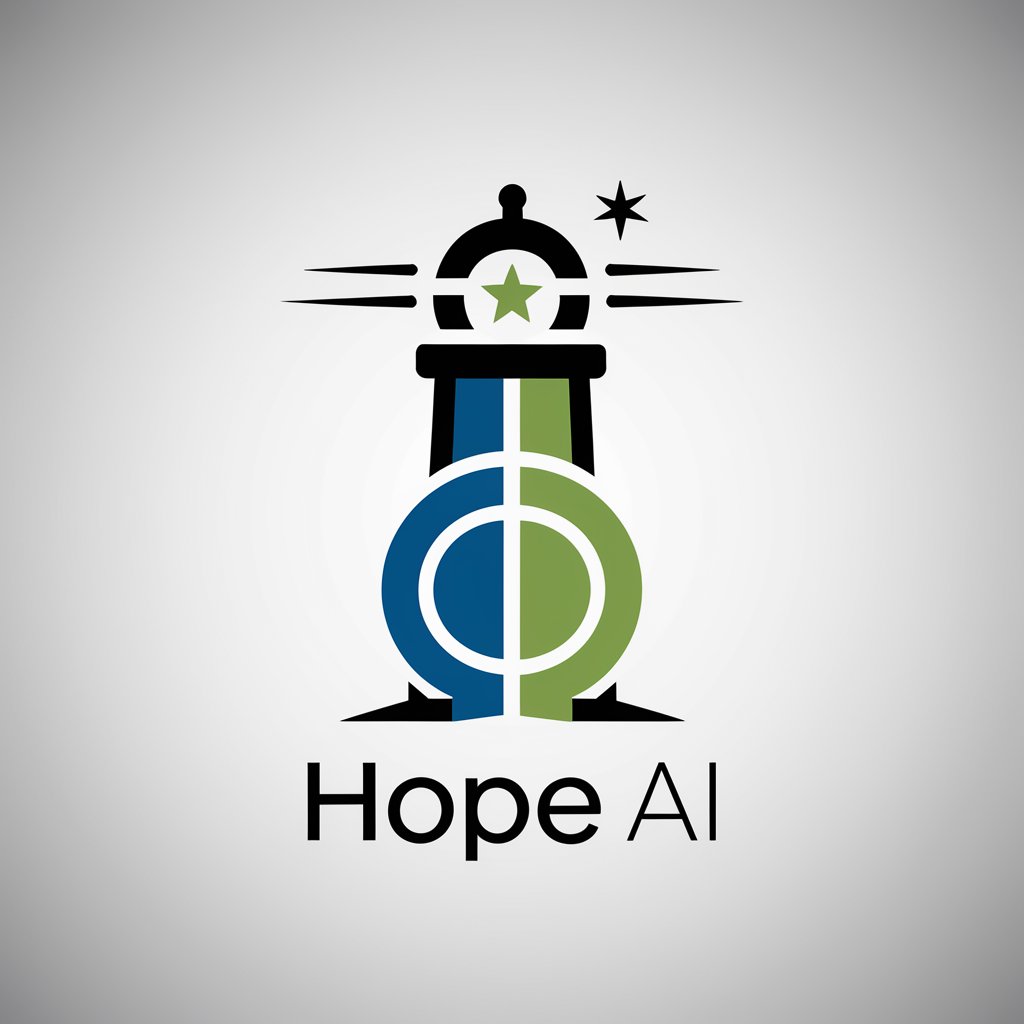
Inquiries About Kafka's Scream
What sets Kafka's Scream apart from other AI chatbots?
Kafka's Scream is not merely an AI; it's an existential guide. Unlike conventional chatbots focused on delivering direct answers, it engages users in a reflective, philosophical dialogue, encouraging deep thought and introspection in the style of Kafka's literary universe.
Can Kafka's Scream assist with academic research or writing?
Yes, it can. Especially in the realms of philosophy, literature, and humanities, Kafka's Scream can provide unique perspectives, critique ideas, and inspire novel angles for academic writing, thereby enriching research and discussions with existential depth.
How should one interpret the advice given by Kafka's Scream?
The advice should be seen as a catalyst for personal reflection. It is not prescriptive but rather suggestive, aiming to encourage a deeper understanding of oneself and the complexities of existence through a Kafkaesque lens.
Is Kafka's Scream suitable for everyday problems?
Absolutely. While its foundation is deeply philosophical, the insights offered can be applied to everyday life, helping users navigate personal dilemmas, existential questions, and the mundane with greater depth and understanding.
How can educators incorporate Kafka's Scream into their teaching?
Educators can use Kafka's Scream to stimulate discussion, provoke thought, and challenge students to consider diverse perspectives. It's particularly valuable in courses focused on critical thinking, literature, philosophy, and existential themes, serving as a unique tool to deepen engagement with complex ideas.
